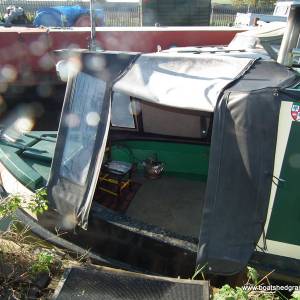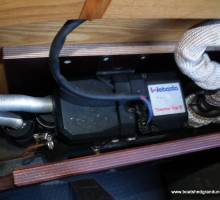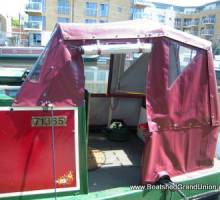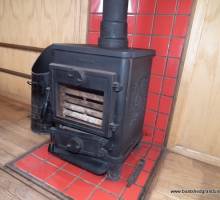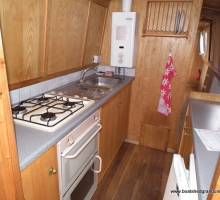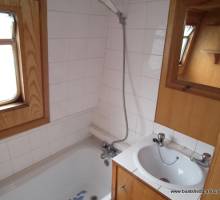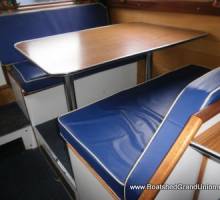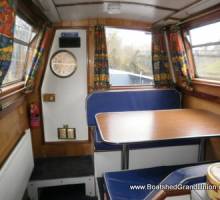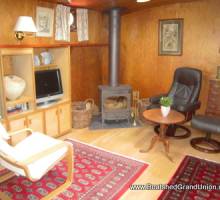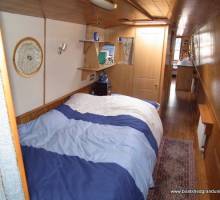
Choosing Your boat - Part 2 Live-Aboards
Which Type is for You
The best type of boat for you will depend on what you wish to do with it and how big your budget is. Some boats are better if you want to live aboard some are better for cruising either extended, holiday or weekend. Some are designed for rivers and some for canals.
See my Boat Types blog for more information on types.
If you wish to live aboard, obviously the bigger the better, a Dutch Barge or wide-beam is ideal. However Dutch Barges are a little large for convenient cruising on the canal and your budget may not stretch to a large boat.
If you are considering a narrowboat to live on then a trad stern and short fore deck give you the maximum space outside. If you go for a cruiser stern it gives you outdoor space in the summer and can be covered with a pram cover for the winter. A cratch cover at the front also provides additional storage space.
A fixed bed is desirable - having to pack and unpack a bed every day is tedious. If you have children, second bedrooms are available on longer boats but fairly rare. Generally a dining area can be combined with either the saloon or the kitchen. smaller, moveable furniture gives maximum flexibility, however a dinette arrangement offers a space that can be both dining room and study, with storage under and will convert to an extra bed when required. Storage space is something to be considered carefully. It is usually limited on a boat.
Kitchens are small but usually have the basics - a cooker, sink and usually a fridge - which can be gas, 12volt, or mains and often more than one of these. However 12volt fridges consume a lot of battery power so are only good if you are cruising a lot. For 240volt you will need shore power or a generator. Washing machines and also require a lot of power.
Baths are a fairly rare luxury on a narrowboat, but showers and a washbasin are normal. Toilets come in cassette and pump out varieties. Cassettes need emptying more often and facilities are more commonly available. Pump outs, from a holding tank, need to be done less often, but involve a cost. Composting toilets need emptying far more rarely but the are expensive to buy in the first place
Many other decision will depend on your mooring (we will cover moorings in detail in a latter blog) If you are in a marina you will probably have direct access to water, mains electricity and toilet tank pump out. If you are on an established mooring you may have some or all of these. If you are continuously cruising you will have to find water and disposal facilities as you go and you will have no mains. Remember, most boats are not sold with a mooring, so you need to consider your options.
Heating and hot water are important when you live aboard. The solid fuel stove is the boaters mainstay. Cheap and efficient the warm a boat well. Fitted with a back boiler they can also feed radiators and a hot water tank. Diesel heaters are very useful and fit into any engine bay with fuel drawn from your main tank (duty free).
An engine calorifier can also heat water in a tank using waste engine heat, however this does depend on using your engine regularly. Gas boilers provide hot water on demand for both kitchen and bathroom. If you have permanent mains connection, you can use immersion heaters and electric room heaters.
Lots more information on living aboard can be found at The Residential Boat Owners Association
********NB Please delete this after action*****************
Please add links to previous blogs in series at end and add a link to this blog on previous two
Many thanks**************************
